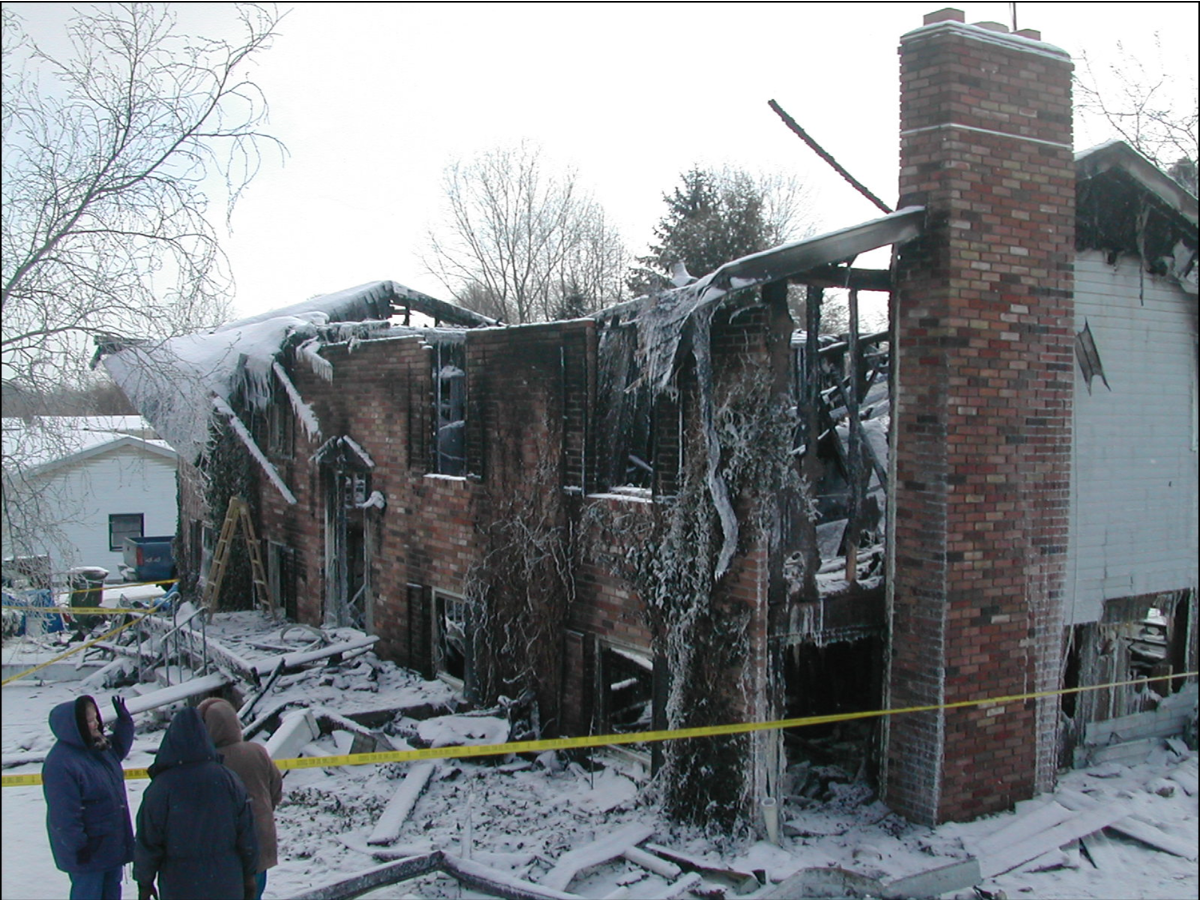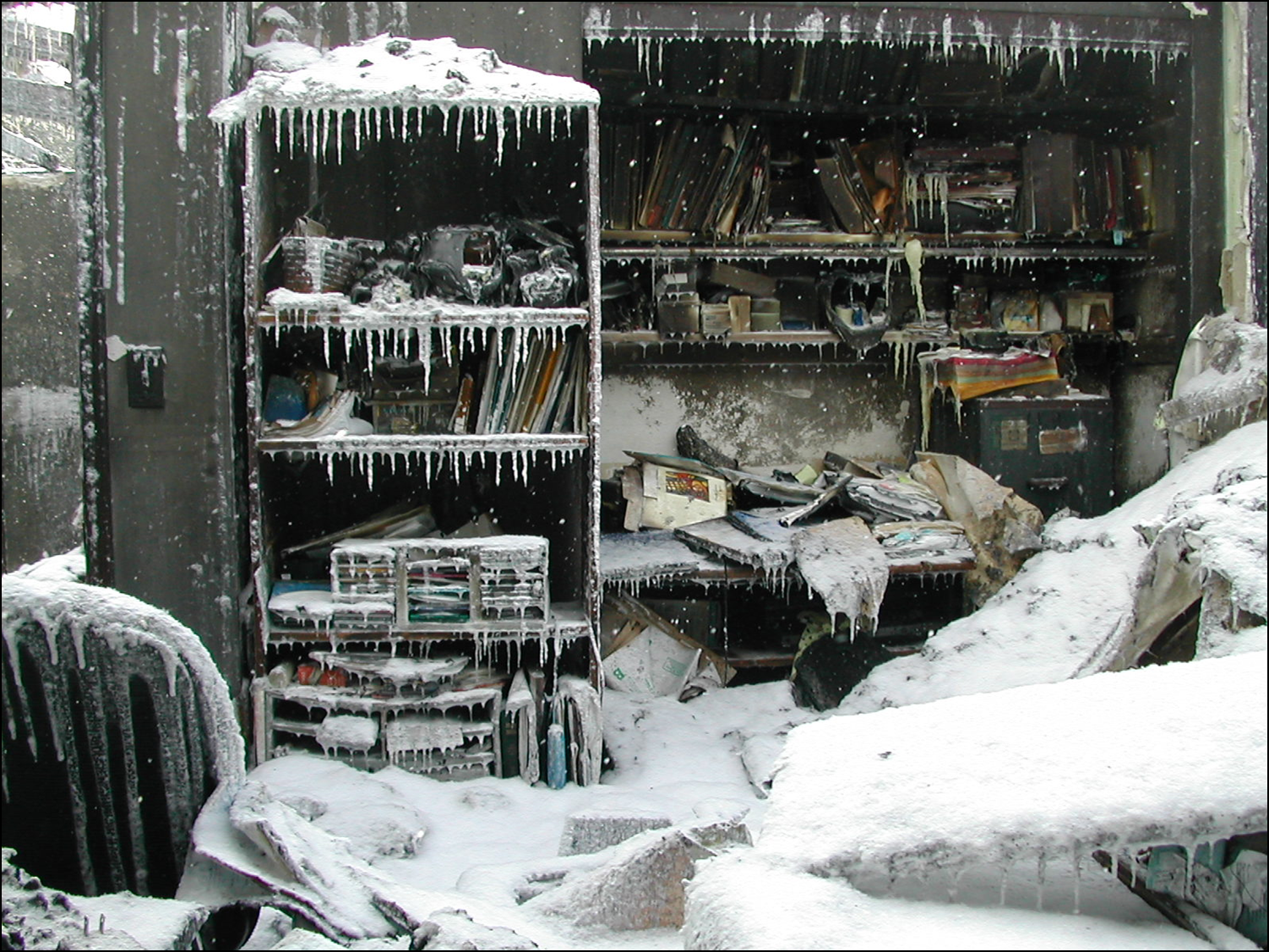FIRE AND WATER LOSSES, THE HUMAN DIMENSION
How many of you have experienced a loss? Anything counts, because we have all suffered a loss, a loved one, a dear pet, a friendship, your health, a job…. What about a structural loss? A house fire, a flood, tornado or hail damage? All of these things get dealt with the same way – Grief. A 5 letter word that no one really wants to talk about. Those who have experienced grief know that you don’t “get over it” you get through it. It never disappears, it never goes away. It eases, it hurts less, but it’s always there.
In the Mr. Rogers movie A Beautiful Day in the Neighborhood, Fred states “You know, death is something that many of us are uncomfortable speaking about. But, to die is to be human. And anything human is mentionable, and anything that is mentionable is manageable.” Wise words Mr. Rogers shared but it’s not always about death, or is it. It could be the death of my home, death of clothing, the carpet, my kitchen, my bed, my pictures, my office…death of the time I could be spending time with family or friends because I have to restore my home. Death of time, priceless time, which is not insurable; time I will never be able to recover.
Elizabeth Kübler-Ross talks about five emotions that occur with a loss which are: denial, anger, bargaining, depression, and acceptance.
I have the unfortunate experience of enduring structural losses. As some of you may know, my family suffered a house fire in 2004.
It was a total loss. Everyone was fine, but we quickly tired of getting new things – new clothes, new hairbrush, new shoes, new wallet, new pots and pans. While that can sound appealing, think about having nothing but the clothes on your back and having to repurchase everything you owned. It was not as fun as it sounds. Then the rebuild of the home. Finding a builder, selecting the style of the home, selecting new floorings, wall colors, cabinets, cabinet style, cabinet hardware – LOTS of decisions we didn’t really want to make, but had to. We grieved as a family, not well at times, but the family therapy we participated in helped us to move forward.
This past December I suffered another loss in the new home. My daughter and her family were visiting overnight and as is custom in our home we lit the Advent wreath while we were eating dinner. In a rush to get out the door to go to church, we forgot to blow out the candles. The candles melted down catching the wreath on fire. I walked into a wall of smoke, promptly grabbed the fire extinguisher (where are yours located?) and put out the fire on the table. Thankfully the wreath was on a metal tray so the fire was contained and the table never caught fire (it is badly scorched though).
While it seems like a minor fire compared to the first one, the smoke damage was so severe the entire house had to be restored. All the ceilings and walls had to be repainted, all the clothing, bedding, furniture, plates, pots and pans had to be cleaned, and I was unable to live there until it was done. More grief, more frustration, and more decisions. Sadly, my wife passed away 9 years ago, so I am now responsible for ALL the decisions. To add to this grief, we were all living in a pandemic that took away many of our freedoms and, just a few weeks earlier one of my older sisters died from health-related issues. So I was suffering from a pile-on effect PLUS the emotion of stupidity for not blowing the fricking candle out.
What is your story? Do you have empathy with these – did you personally experience a loss and can relate to how I am feeling? Or just sympathy – you understand how this can affect a person, but have no direct experience?
The point of me telling you these stories is to help you help your customers, clients, friends who may have suffered a loss. While we feel we don’t want to intrude on their feelings, stop to think of how you felt or would feel in their shoes. Wouldn’t someone saying “I’m really sorry to hear that” or “do you want to talk about it” make you feel just a little bit better? We all have a job to do and never enough time to do it. But the emotional toll losses take on a person is overwhelming. Now I have to do my job AND make these additional decisions? Wouldn’t it be nice if someone just listened for a minute? I don’t need you to fix it or make the decision, but can I just vent?
People who have suffered a loss are not interested in any losses you have suffered in your life. When I lost my home to fire people (not knowing what to say) would say: “Won’t it be nice to get a new home” (I kinda liked the one I had) or “so glad no one was hurt” (yes I agree, want to look inside my heart?) or “oh man, I remember when I had a water pipe break” (honestly I don’t have the compassion for you at this time). Or when I lost my wife of 30 years: “she’s in a better place” (I wish that place was standing here right beside me) or “I remember when my dog died and how sad I was” (seriously, you’re comparing the loss of your dog to the death of my wife?). I get it, people just don’t know what to say at the time, my advice, say nothing, just be present to the person who is grieving. I know silence is frightening, but it is also healing to some. AND IT IS OKAY TO TALK ABOUT THE LOSS. Talking about the loss and all that has occurred and tears that may happen is cleansing; that is called mourning. The grief one is suffering is turned outward, that is when true healing occurs. And as stated earlier, there is NO TIMELINE for a loss a person suffers. I read a book one time titled “No One Cries the Wrong Way.” We all have different ways we process losses, some with tears, some with silence. PLEASE though, mourn in a healthy way. If you need medication, see a doctor and use prescription drugs for depression, nothing illegal or out of a bottle. Those last two just prolong the inevitable healing that must take place or you will forever return to those 5 emotions Kübler-Ross wrote about.
How do you train your staff or yourself to deal with losses? Do you? Just clocking in, doing the job and clocking out doesn’t address the human dimension of the loss. Have you talked to the customer? Did you hear their story (not just listened to it)? It is awkward trying to have these conversations. Here are some statements you can try to make the person feel heard.
Things to say/ask:
Tell me again how this happened.
Was there anything precious to you that was damaged?
How has your day been going?
How are you feeling?
Do you feel safe?
Are you sleeping well?
What not to say:
How are you doing? (Unless you really mean it and are willing to spend the time listening)
I remember when my…
Something that is also important for you to keep in mind is your own emotional wellbeing and your staff members, most especially your front line workers, is the phenomenon known as compassion fatigue, AKA burn out. Compassion fatigue is a condition characterized by emotional and physical exhaustion leading to a diminished ability to empathize or feel compassion for others. Dealing with clients day after day that suffer a loss is emotionally draining. To help yourself or your staff process compassion fatigue and decompress from the emotional strain, consider some of the information found on goodtherapy.org.
What I have just written about and shared are several losses I have endured in my life. Losses come in lots of ways, loss of a job, loss of friends because you had to move, loss of a spouse through divorce, loss of your health, loss of…name it, we have all lost something in our lives.
The purpose of this article was not to get pity or condolences due to my losses, albeit thank you in advance if you send some my way, and to be honest I shed many tears writing this article because it dredged up painful memories (mourning). The purpose was to point out the human dimension that goes WAY beyond the decision making and dollars that surrounds each of them.




